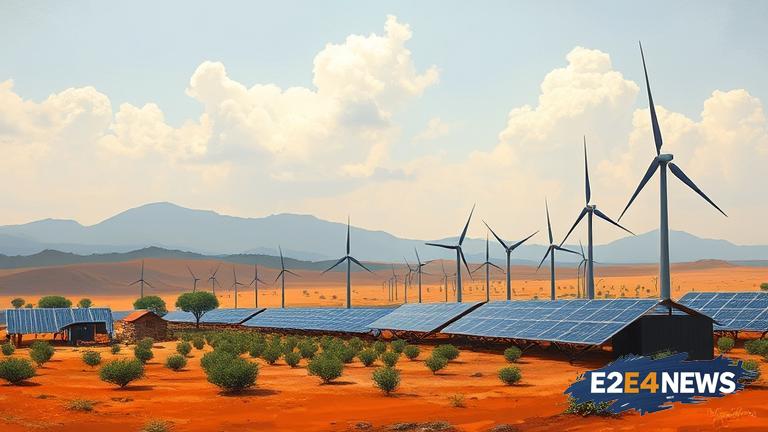The African continent is witnessing a significant shift towards renewable energy, driven by the need to address the pressing issues of energy access, energy security, and climate change. With many countries still struggling to provide reliable and affordable electricity to their citizens, renewable energy has emerged as a viable solution. Solar and wind power are leading the charge, with countries like South Africa, Egypt, and Morocco investing heavily in these sectors. The cost of renewable energy technologies has decreased dramatically over the years, making them more competitive with fossil fuels. This has led to a surge in investment, with many international companies and organizations partnering with African governments to develop large-scale renewable energy projects. The African Union’s Agenda 2063 has set ambitious targets for renewable energy, aiming to increase the share of renewables in the energy mix to 50% by 2030. To achieve this goal, countries are implementing policies and regulations to support the development of renewable energy. For instance, South Africa’s Renewable Energy Independent Power Producer Procurement (REIPPP) program has been successful in attracting private sector investment. Similarly, Egypt’s feed-in tariff program has encouraged the development of solar and wind projects. Morocco’s ambitious plan to generate 52% of its electricity from renewables by 2030 is another example of the continent’s commitment to a low-carbon future. The benefits of renewable energy are numerous, including reduced greenhouse gas emissions, improved air quality, and enhanced energy security. Moreover, renewable energy can create jobs and stimulate local economies, contributing to sustainable development. However, there are also challenges to be addressed, such as the need for significant investment in infrastructure and the integration of intermittent renewable energy sources into the grid. To overcome these challenges, countries are exploring innovative solutions, such as energy storage and grid management systems. The role of international cooperation and knowledge sharing is also crucial, with many countries learning from each other’s experiences and best practices. The private sector is playing a vital role in driving the renewable energy revolution in Africa, with companies like Vestas, Siemens Gamesa, and Enel Green Power investing in the continent. Additionally, development finance institutions like the African Development Bank and the International Finance Corporation are providing critical funding and support. As the continent continues to transition towards a low-carbon economy, it is essential to ensure that the benefits of renewable energy are shared equitably among all stakeholders. This includes supporting local communities and promoting gender equality in the renewable energy sector. In conclusion, Africa’s renewable energy revolution is gaining momentum, driven by the need to address energy access, energy security, and climate change. With the right policies, investments, and international cooperation, the continent can unlock its vast renewable energy potential and create a sustainable future for generations to come. The future of renewable energy in Africa looks promising, with many opportunities for growth and development. As the continent continues to evolve, it is likely that we will see even more innovative solutions and partnerships emerge. The impact of renewable energy on the environment, economy, and society will be significant, and it is essential to ensure that the transition is just and equitable. By working together, African countries can create a brighter future for all, powered by clean, reliable, and affordable energy.
